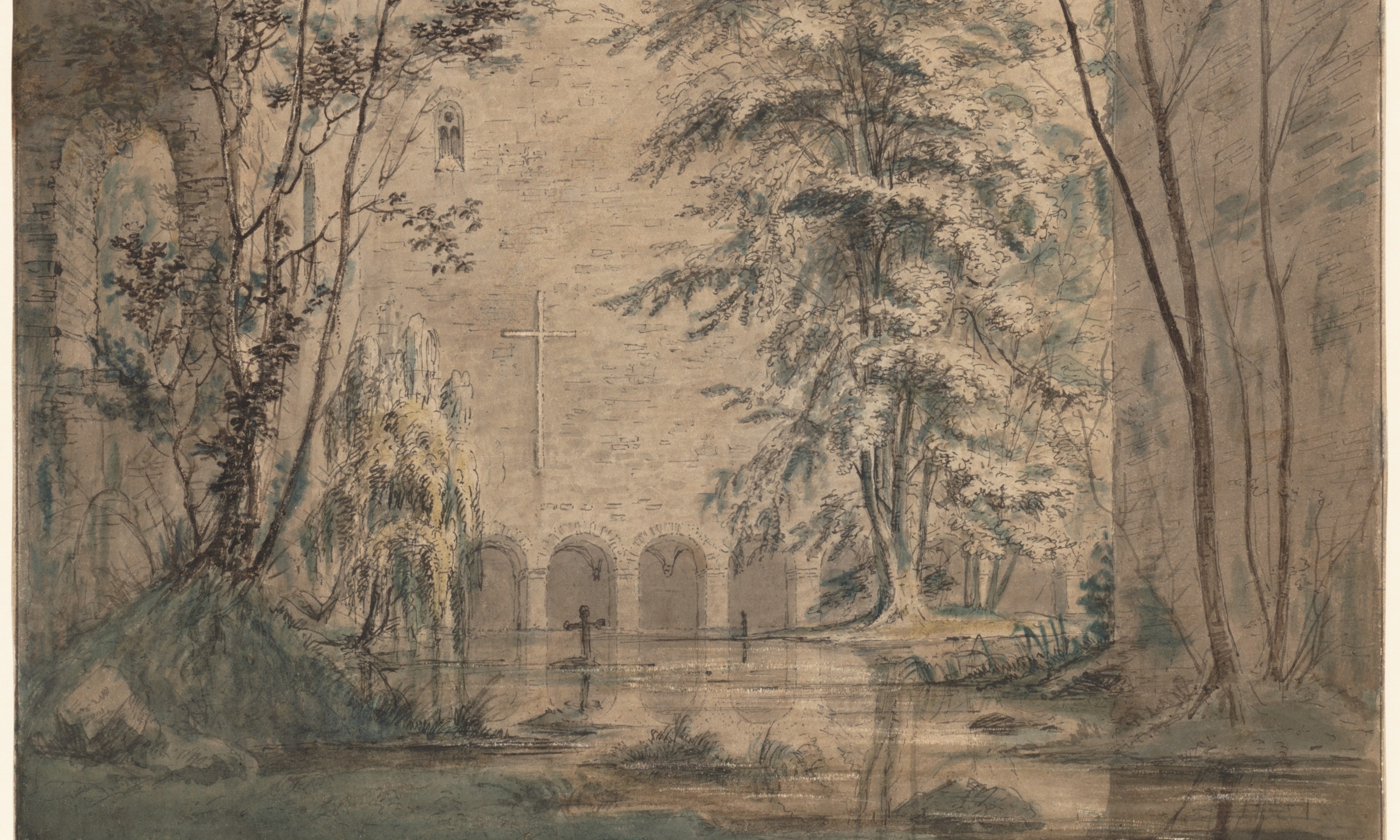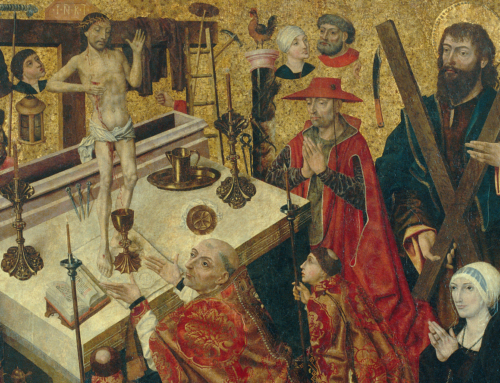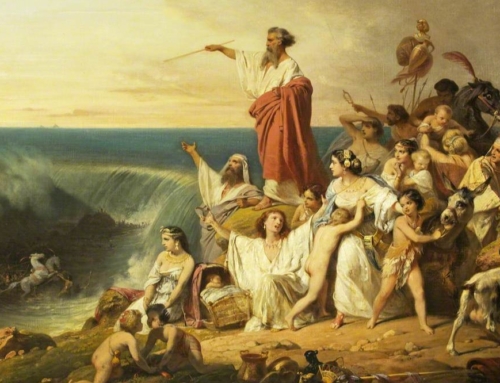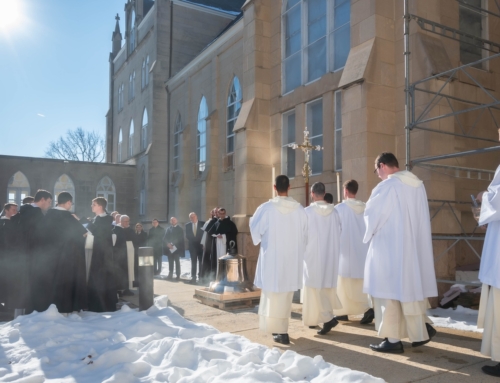Sometimes it happens that they meet in an abandoned shrine, and place on the altar a stole which they still keep, and recite all the prayers of the Eucharistic liturgy; and then, at the moment that corresponds to the transubstantiation a deep silence comes down upon them, a silence sometimes broken by a sob…so ardently do they desire to hear the words that only the lips of a Priest can efficaciously utter. So much do they desire Eucharistic Communion, in which they can share only through the ministry of a priest, just as they also so eagerly wait to hear the divine words of pardon: Ego te absolvo a peccatis tuis! So deeply do they feel the absence of a Priest among them! Such places are not lacking in the world. (Letter of Pope John Paul II on Holy Thursday in 1979, par. 10)
When St. John Paul II recounted the deep grief of the Christian people deprived of the priest’s sacramental ministry, he described their prayers under the oppression of communist tyranny. Today, in almost every place, the Christian people have again been separated from the sacramental ministry of priests—this time not by communist tyranny but by civil orders and ecclesiastical decrees that name the sacraments as “non-essential services” contrary to public health in a worldwide infection. Even if these closures may be prudent and necessary, they constitute a deep grief.
And this should be a deep grief. Our faith draws life from the sacraments, and faith draws us to the presence of Christ in the sacraments—they are the source of the summit of faith. But even in this affliction I have confidence and hope.
I am confident that God will pour out his mercy and grace in extraordinary ways, fitted to extraordinary trials. For Jesus came because “those who are well have no need of a physician, but those who are sick [do]” (Lk 5:31). When the whole world is sick, we can certainly rely on Christ, who is the Divine Physician, to come and heal us. He will let nothing, not even this, stand between us and his love.
I hope that many will come out of this crisis with a renewed thirst and love for the sacraments, for absolution in confession, for the Body of Christ in the Eucharist. The tragedy of enforced absence can stir up desire, just as on Holy Saturday the absence of Jesus and the anguish of the tomb was a preparation for the startling joy of Easter.
I also hope that our renewed awareness of the sacraments will be a renewed awareness of the priesthood too. After all, remember why we are in this predicament: not because there is something about the sacraments themselves that threatens disease, but because the sacraments require the bodily presence of the priest with the people of God. Since the priest is an irreplaceable part of the sacraments, if he is prevented from being with the people then the people are prevented from receiving the sacraments.
Unlike the citizens of Eastern Europe who were deprived of priestly ministry for decades on account of communism, our own trial should be much shorter. God willing, soon we will be able to be together again. Soon we will be able to return to the sacraments. But that is only true because men still choose to become priests. So during this long Holy Saturday, during this time of trial, say a prayer for vocations to the priesthood. And if you are a young unmarried man yourself, consider becoming a priest and doing your part so that this temporary tragedy will never become a permanent state of affairs. Today, of all days, we know how much the sacraments matter. And they matter enough to devote your entire life to their service.
✠
Image: Karl Blechen, Inundated Ruins of a Monastery







